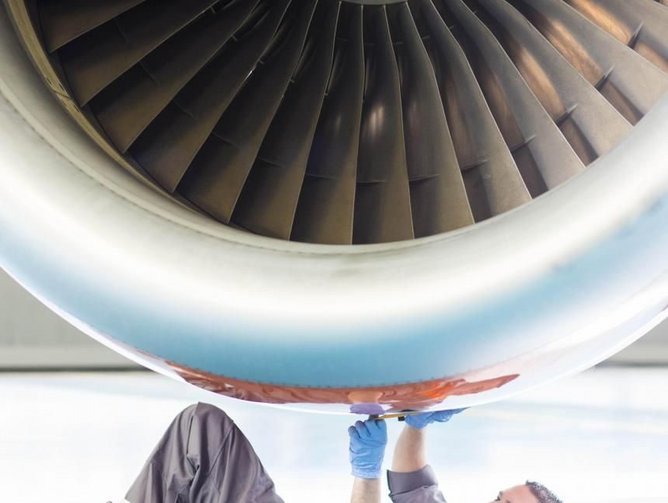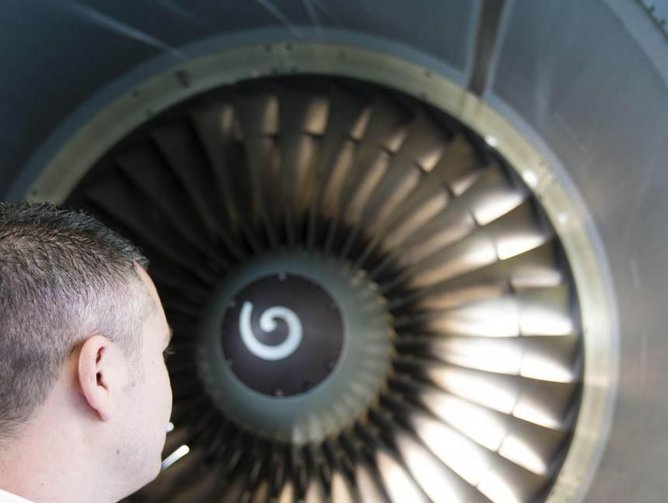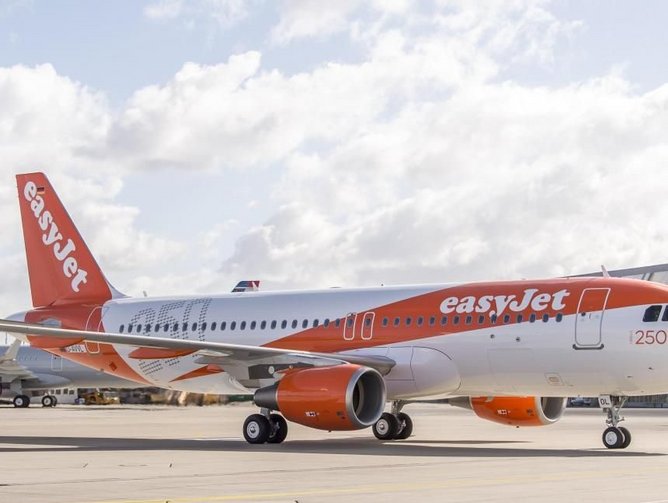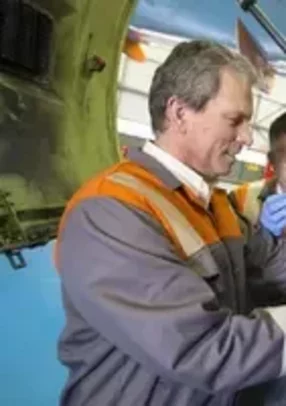Recently recognised as the best value airline in the United Kingdom, European travel giant easyJet has witnessed exponential growth. With tourism figures continuing to rise on a global scale, the low-cost airline has announced its aim to expand its holiday business and implement a sought-after loyalty scheme, bringing increased returns to shareholders and retaining its position as an airline of choice.
However, whilst the business has flourished, it remains under increased pressure. Travellers remain driven by deals which are cost-effective and can guarantee exceptional service besides. The maintenance of its aircraft is area often overlooked, yet is the most vital element of all.
Responsible for supplying the material needed for easyJet’s fleet, Elentinus Margeirsson, Head of Supply Chain Engineering & Technical Contracts, explains how the division works to ensure safety, drive quality results and align with core business values.
“Our material classification can be broken down into three categories, Consumable Expendable (C&E), Consumable Repairable (CR) or Rotables. The first category is pretty self-explanatory. The second class is material that we try to re-use dependent if a repair is possible and economical. And the last category is our assets. Those we repair/overhaul and use until either it is not possible or economical to repair.
“If the material is high usage and/or critical to our operation, we will keep it on site and the list of materials we keep on site will depend on the volume of aircrafts going through there and the type of maintenance performed,” he says.
Witnessing rapid growth year on year, easyJet’s supply chain team has grown considerably. Noting that the division previously outsourced a number of supply chain activities, it has invested in bringing in the right talent to harness the required knowledge to deliver exceptional service.
Fleet maintenance
Situated at over 30 line stations, aircraft maintenance is routinely completed overnight. However, to ensure all work is completed in a timely manner, the team works to supply all required material to the correct station or utilise stock already on site.
As the airline is set to open a number of new stations this summer, a defined list of materials will also support the need to ship items to a particular station. However, this list will continue to grow with the number of aircraft, as well as the number of departures per station.
The company’s recent acquisition of Air Berlin, for example, led to a number of challenges.
“We had to set up an operation of 25 aircraft within six months, so time was of the essence. We took the ex-Air Berlin aircraft over, and we required maintenance to be done to ensure that they were in line with our current aircraft specification and make them fit into our maintenance programme,” observes Margeirsson.
“They were at different standards than our own aircrafts. We required some modifications to be done and the material and components needed for that modification were supported by the supply chain team.
“Each year, there's the challenge that you will add on x amount of aircrafts which then will result in more maintenance events per year. This means more consumption of your inventory. Also, as aircrafts age, the inspections required to maintain those aircrafts increases which results in more consumption of material.”
Optimisation
Utilising KPIs at service level, the airline’s supply chain performance is measured each month, which evaluates the turnaround time of components from repair back to serviceable state, to stock level at certain stations and how many times material shortage is involved in operational disruption. The airline uses AMOS to support its maintenance operations.
“Our KPI’s are critical for us in order to see if we are improving on our delivery to the airlines operation. AMOS keeps track of all the work completed and work to be completed on the aircraft as per our maintenance program, which is approved by the authorities.
“This industry is one of the more heavily regulated industries,” acknowledges Margeirsson.
“We have strict guidelines on how we maintain our aircrafts and we are regularly audited by the Civil Aviation Authorities to ensure that we are in constantly in compliance with the regulation. We have to have traceability of all items bought and used. If there is a recall we need to know exactly on which aircraft the item was used.
“In the last five months, we have been exploring the option of acquiring an inventory optimisation software to help us with making better adjustments on what we need to support our operations. This is currently a request for proposal (RFP), but is something that we are hoping to achieve this year.”
With the largest hubs at Gatwick, Malpensa, Berlin and Luton, the airline also looks at the consumption of each station, the type of aircraft operating out of a particular station, the number and frequency of aircrafts, and how many flights depart at each station.
“This is combined with the maintenance work planned, which depends on the capability of the MRO contracted. We will come up with a list of items that we want to keep there to support the maintenance event and the aircraft operation. The challenges are always when you have these ad hoc findings which you don't have any historical consumption information can always be a pain,” Margeirsson says.
Despite its challenges, its maintenance operations continue to expand across Europe; from Ljubljana, Malpensa and Malta. Long-term, whilst its main inventory hub remains in the UK, the company will face a number of risks, which it seeks to address through a number of partnerships.
“We are working with Cranfield University, for example, to look at our system setup to see if there is an opportunity to add another inventory hub within central Europe which could help us improve our service level, decrease the shipping time and shipping costs. The work is also meant to explore the implications that Brexit could have on our supply chain.”
Strength in numbers
Throughout its expansion, easyJet’s recent long-term agreement with independent specialist AJW Group will also seek to enhance the efficiency of its existing fleet by providing the airline’s component maintenance, as well as the provision, storage and distribution of spare parts and material.
“Our contract is structured in such a way that it anticipates that we will add aircrafts to the fleet. Once they are in operation the contract kicks in,” says Margeirsson.
“Our contract with AJW covers purchasing, repair management and logistics. They handle our purchasing activities for material required for the aircraft we currently have in operation. Also they do the repair management of our rotables, which means once the component comes off the aircraft it is sent to AJW who then prepare the required documents and route the component for repair.
“Within our contract we have items that are included in our rates with AJW,” he continues. “There are occasions where we don't have that included so we will cover those costs, on a time and material basis. The same goes in terms of logistics.”
Whilst it is clear that easyJet demands a lot from its suppliers, it continues to place pressure on itself to drive results. Partnering with Lufthansa to support its maintenance and logistics services further, the German company supports easyJet’s inventory in Berlin.
“With the addition of Air Berlin operation we are foreseeing that Berlin will be one of our biggest hub, therefore we have been working with Lufthansa Technik Logistics Services to have the require material on site in Berlin. We send our own inventory out there, they will receive it into the system, keep track of it, and provide us with information on consumptions and movement,” Margeirsson adds.
Additionally, easyJet partners with numerous other suppliers for its material and maintenance activities.
Remaining lean and efficient across its operations, the company is predicting a 30% rise in profits across 2018 and has witnessed an increase in shares over the last six months. easyJet will continue to lead the way in the airline industry, drive high-quality services from the top, down, increasingly attract corporate and leisure travellers and remain ahead of the competition.




